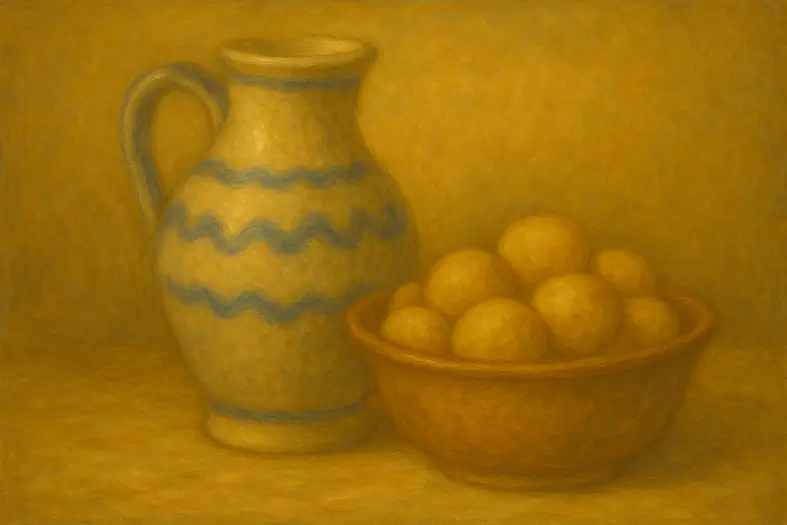


A Nazir is forbidden from eating raisins (dried grapes) during the time of his vow.
This mitzvah prohibits the Nazir from eating dried grapes, extending his restrictions beyond wine and fresh grapes to include all forms of the fruit. Even in its dried and concentrated form, the grape remains forbidden.
By abstaining from raisins, the Nazir demonstrates total separation from grape products, guarding the sanctity of his vow and ensuring that even indirect indulgences are avoided.
Commentary & Classical Explanation:


Represents Emunah—the deep, inner trust in Hashem’s presence, oneness, and constant involvement in our lives. This badge symbolizes a heartfelt connection to G-d, rooted in belief even when we cannot see. It is the emotional and spiritual core of many mitzvot.
Signifies awe and reverence toward Hashem—living with awareness of His greatness and presence.
Represents the concept of spiritual intentionality, purity, and sanctity—set apart for a higher purpose.
Pertains to the power of speech—both positive and negative—including lashon hara, vows, and blessings.
Mitzvot that strengthen communal life — showing up, participating, supporting, and belonging. Community is where holiness is shared, prayers are multiplied, and responsibility becomes collective.
Mitzvot that define and deepen the relationship between a person and their Creator. These include commandments involving belief, prayer, Shabbat, festivals, sacrifices, and personal holiness — expressions of devotion rooted in divine connection.

Dive into mitzvos, prayer, and Torah study—each section curated to help you learn, reflect, and live with intention. New insights are added regularly, creating an evolving space for spiritual growth.

Explore the 613 mitzvos and uncover the meaning behind each one. Discover practical ways to integrate them into your daily life with insights, sources, and guided reflection.

Learn the structure, depth, and spiritual intent behind Jewish prayer. Dive into morning blessings, Shema, Amidah, and more—with tools to enrich your daily connection.

Each week’s parsha offers timeless wisdom and modern relevance. Explore summaries, key themes, and mitzvah connections to deepen your understanding of the Torah cycle.